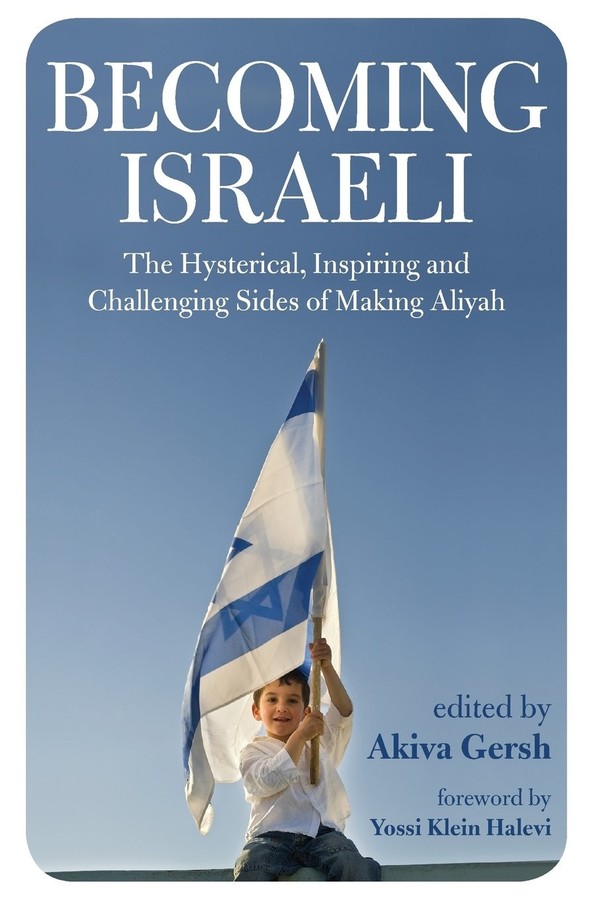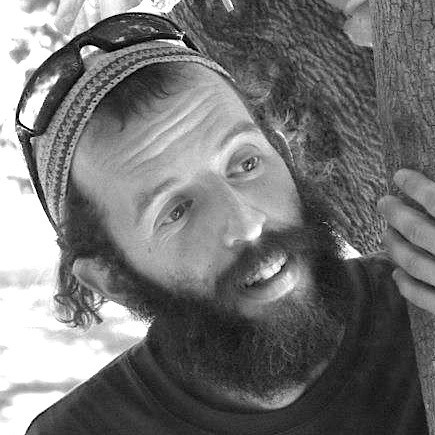‘Becoming Israeli’ eyes challenges of coming home
“Becoming Israeli,” an anthology edited by Akiva Gersh, narrates the hysterical, inspiring and challenging sides of immigrating to Israel.
The book unites the writing of 40 bloggers “whose words take readers on an adventure that evokes a wide range of emotions, from frustration to inspiration, from confusion to deep pride,” Gersh said.
At the book’s official launch event July 23, Gersh sat on a panel with contributing authors who shared their unique reasons for making aliyah, the challenges they face while acclimating to a new language and culture, and why they would never want to live anywhere else. The common threads running through their stories were the many paradoxes of life in Israel, becoming a change agent rather than a bystander in the history of the Jewish people, and great optimism in the communal vision of bringing Jews back to their ancestral homeland.
Benji Lovitt, a comedian, spoke of the paradox of finding his “creative high” during wartime, when he made light of the news headlines during the summer 2014 Israel-Hamas conflict in Gaza. Although “it is perverse to have pleasure with war,” he said the 50-day war marked the height of his career because his work helped many people unite in humor and overcome trauma.
While Hilary Faverman recalled coming to Israel “kicking, screaming and sobbing on the plane,” Gersh said he needed to come back to Israel, a place filled with spirituality and meaning, or else he would die.
Chaya Lester detailed the mundane challenges she faces with her Hebrew, embarrassed by the fact that her 10-year-old child needs to read her bills for her, in contrast with the feeling that she is a vessel for the divine on a 2,000-year-old mission to give voice to the “prophetic return of the Jewish people to the land.”
Gersh shared one reason for not moving back to America and simplifying his life is his children.
“The knowledge that they are growing up in the world’s one Jewish state is reason enough to stay. … I have come to understand that my struggles and sacrifices are but the birth pangs of a process much larger than myself,” he writes in the book.
Yossi Klein Halevi, a prominent American-born Israeli journalist and author of the foreword to Gersh’s anthology, said the weight of being Israeli only hit home when his son entered the IDF. Describing one of the paradoxes of aliyah and life in Israel, he noted the high number of immigrants who arrived during the second Palestinian intifada—“the low of Israel, the moment where we were tearing ourselves apart into a dysfunctional society.” He identified his “happy place” in the Jewish state as the Cave of the Patriarchs in Hebron, which is simultaneously “one of the most broken places in Israel,” but where he feels “whole, rightness and a collection of souls of the Jewish people.”
Gersh made aliyah in 2004, six years after his first visit to Israel at age 22. He is a blogger and a musician, and lives in the town of Pardes Hanna with his wife and four children. For the last 10 years, he has been teaching Jewish history and modern Israel at the Alexander Muss High School in Israel, where he guides visiting high school students through the story of the Jewish people, mainly through excursions to historical, religious, cultural and ecological sites.
The author recalled finding out about the Hamas terror group’s kidnapping and murder of three Israeli teenagers in the summer of 2014, and the next day, bringing his students to the Masada landmark and telling them what happened. He said it was an intense moment when “everyone cried as if it were Tisha B’Av.” In that moment, Gersh found beauty through connecting the pre-sent to the Jewish people’s past, and leaving with a greater sense of unity and purpose.
Indeed, Gersh said one of his broader goals in Israel, and a concept driven home by his aliyah-focused anthology, is to give voice to the “beauty in the brokenness.”
Eliana Rudee is a fellow with the news and public policy group Haym Salomon Center. Rudee is among the contributing authors in the book that is the subject of this article.

 44.0°,
Mostly Cloudy
44.0°,
Mostly Cloudy 







